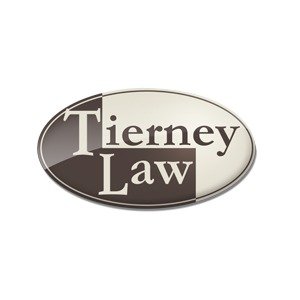Best Collaborative Law Lawyers in Hobart
Share your needs with us, get contacted by law firms.
Free. Takes 2 min.
Free Guide to Hiring a Family Lawyer
List of the best lawyers in Hobart, Australia
About Collaborative Law in Hobart, Australia
Collaborative Law is an alternative dispute resolution process that focuses on achieving amicable settlements for family law disputes without the need for court intervention. In Hobart, Australia, this method is particularly beneficial for families going through divorce or separation, as it encourages open communication and cooperation between parties. The process involves the parties and their respective lawyers working together, often with other professionals like financial advisors or child psychologists, to come to a mutually acceptable solution.
Why You May Need a Lawyer
Many situations can benefit from the expertise of a Collaborative Lawyer in Hobart. These include, but are not limited to, divorce proceedings, child custody arrangements, and spousal support disputes. Collaborative Lawyers can help navigate these often emotional and complex issues by fostering a setting that prioritizes negotiation rather than litigation, thus preserving relationships and minimizing the stress associated with going to court.
Local Laws Overview
Collaborative Law in Hobart operates under the broader framework of Australian Family Law. Key aspects of local laws include the Family Law Act 1975, which outlines the legal standards for divorce and familial arrangements. Collaborative Law is recognized as a legitimate means of dispute resolution, which encourages negotiated settlements without judicial involvement. This approach is noted for its confidentiality and is supported by legal practitioners in Hobart who are trained specifically in collaborative practices.
Frequently Asked Questions
What is the primary benefit of choosing Collaborative Law?
The main advantage is that it allows both parties to control the outcome, improving satisfaction compared to court decisions while reducing the emotional and financial burden.
Is Collaborative Law legally binding?
Yes, agreements reached through the Collaborative Law process can be made legally binding by formalizing them into consent orders submitted to the court.
Who can participate in the Collaborative Law process?
Besides the parties involved and their lawyers, neutral experts, such as financial advisors and child specialists, can participate to provide technical guidance.
What happens if an agreement isn’t reached?
If collaborative negotiations fail, the involved lawyers must withdraw, and new legal representation will be necessary if the case proceeds to court.
How does confidentiality work in Collaborative Law?
All discussions within the collaborative process are confidential and cannot be disclosed in court unless both parties agree.
Are there any upfront costs involved?
While Collaborative Law may initially seem costly due to professional involvement, it frequently results in lower overall costs than traditional litigation due to reduced time and court expenses.
How long does the process usually take?
The duration varies depending on the specifics of each case, but it generally takes less time than court proceedings because of streamlined negotiations.
Can I switch to Collaborative Law after filing for a traditional divorce?
Yes, parties can opt to switch from litigation to Collaborative Law, provided both parties agree to the collaborative approach.
What qualifications should a Collaborative Lawyer have?
A qualified Collaborative Lawyer should have specific training in Collaborative Law and experience in family law matters.
Does Collaborative Law apply to all types of legal disputes?
While primarily used for family law issues, Collaborative Law principles can be applied to other types of civil disputes involving partnerships and businesses.
Additional Resources
For those seeking further assistance, consider reaching out to local organizations such as the Law Society of Tasmania, which provides resources and a directory of qualified Collaborative Lawyers. Additionally, the Family Court of Australia offers information and resources on family law matters, including Collaborative Law processes.
Next Steps
If you believe Collaborative Law is suitable for your situation in Hobart, your first step should be consulting with a lawyer experienced in this area. Prepare thoroughly by gathering relevant information and documents related to your case. Consider attending an initial consultation to discuss your situation and understand how the collaborative process can work for you. Additionally, seek recommendations and check credentials to ensure your chosen lawyer is qualified in Collaborative Law practices.
Lawzana helps you find the best lawyers and law firms in Hobart through a curated and pre-screened list of qualified legal professionals. Our platform offers rankings and detailed profiles of attorneys and law firms, allowing you to compare based on practice areas, including Collaborative Law, experience, and client feedback.
Each profile includes a description of the firm's areas of practice, client reviews, team members and partners, year of establishment, spoken languages, office locations, contact information, social media presence, and any published articles or resources. Most firms on our platform speak English and are experienced in both local and international legal matters.
Get a quote from top-rated law firms in Hobart, Australia — quickly, securely, and without unnecessary hassle.
Disclaimer:
The information provided on this page is for general informational purposes only and does not constitute legal advice. While we strive to ensure the accuracy and relevance of the content, legal information may change over time, and interpretations of the law can vary. You should always consult with a qualified legal professional for advice specific to your situation.
We disclaim all liability for actions taken or not taken based on the content of this page. If you believe any information is incorrect or outdated, please contact us, and we will review and update it where appropriate.












